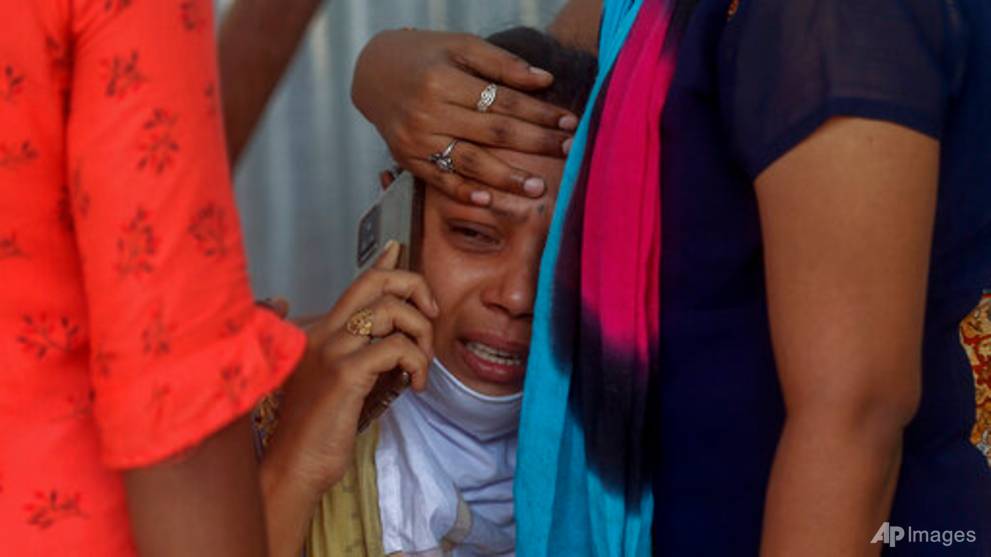SINGAPORE: More than 2,700 reports on suspected adverse effects to COVID-19 vaccination were submitted to the authorities over a three-month period, the Health Sciences Authority (HSA) said on Thursday (May 6).
These reports, which mostly documented common reactions like rash, muscle aches and dizziness, made up 0.13 per cent of the more than 2.2 million administered doses from Dec 30 last year to Apr 18 this year.
This "makes the chance of having an adverse event very rare", the HSA said at a press conference held to give an update on the safety of the Pfizer-BioNTech and Moderna vaccines which have been approved for use here.
Among the 2,796 reports are 95 cases which are classified as serious adverse effects. These made up 0.004 per cent of the total number of administered doses. Reactions are deemed to be severe if they are life-threatening, patients are hospitalised or their functional capacity is significantly reduced.
Most of the adverse effects are "largely expected" with COVID-19 vaccination, said the HSA.

READ: Commentary: Concerns over long-term side effects could hold back Singapore’s COVID-19 vaccination programme
The majority - 70 per cent - of these cases were reported in patients younger than 60 years old but this is "not unusual", said the HSA, noting that the data is consistent with clinical trial reviews.
The common side effects, which include fever, headache, muscle ache and shortness of breath are largely the physical manifestation of the body mounting an immune response, the HSA said.

SERIOUS ADVERSE EFFECTS
Of the 95 cases of serious adverse effects, 20 were reports of anaphylaxis, a rare and potentially life-threatening allergic reaction.
The local incidence rate of anaphylaxis, 1.4 per 100,000 doses administered, is within the reported incidence rates of about 0.5 to 2 in other countries, the authority said.
Another 20 were of severe allergic reaction.
A "small number" of reports were on patients who had effects such as limb numbness and change in vision, the HSA said.
The majority of those who suffered from severe reactions have recovered or are recovering, it added.

ADVERSE EVENTS OF SPECIAL INTEREST
The HSA said it will also closely monitor the occurrence of adverse events of special interest. These are pre-specified medically significant events that have been "observed historically with other vaccines".
Anaphylaxis and Bell's Palsy are examples of such adverse events. Twenty-five cases of Bell's Palsy, also known as peripheral facial nerve palsy, were reported, said the authority. This is a condition that causes temporary weakness or paralysis of the facial muscles.
STROKES AND HEART ATTACKS
The authority noted that a "greater frequency of heart attacks and strokes has not been observed" among the local vaccinated population.
"Strokes and heart attacks do occur naturally in people because of the various conditions. It could be underlying chronic conditions or sometimes it can happen spontaneously," the HSA said.
It added that it has looked at the reports on such effects, but many times it might be “quite hard” to link the event to the vaccine.
"We have not found increase in incidence of strokes and heart attacks in our (vaccinated) patients when compared to baseline incidences," the HSA said.

Explaining baseline incidences, the dean of the Saw Swee Hock School of Public Health at the National University of Singapore Teo Yik Ying said that these are occurrences independent of having vaccination.
Based on numbers over the past two years, there will be around 2,000 stroke cases in three months and slightly less than 3,000 heart attack cases in three months, he said at the press conference.
"No deaths from heart attacks, strokes or any other causes suspected to be associated with the vaccines have been reported locally," said the HSA.
Addressing breakthrough infections in the currently active Tan Tock Seng Hospital cluster, the Ministry of Health (MOH) noted that eight of the 40 cases had mild symptoms or were asymptomatic compared to those who were not vaccinated.
“The benefits of the Moderna and the Pfizer vaccines continue to outweigh the risks in this current pandemic, especially in this current surge that we are experiencing right now,” MOH said, adding that the authorities will continue to monitor the safety profiles of the vaccines.
BOOKMARK THIS: Our comprehensive coverage of the COVID-19 pandemic and its developments
Download our app or subscribe to our Telegram channel for the latest updates on the coronavirus outbreak: https://cna.asia/telegram
https://news.google.com/__i/rss/rd/articles/CBMic2h0dHBzOi8vd3d3LmNoYW5uZWxuZXdzYXNpYS5jb20vbmV3cy9zaW5nYXBvcmUvMjcwMC1yZXBvcnRzLXN1c3BlY3RlZC1hZHZlcnNlLWVmZmVjdHMtY292aWQtMTktdmFjY2luYXRpb24tMTQ3NTU3ODDSAQA?oc=5
2021-05-06 12:33:45Z
CBMic2h0dHBzOi8vd3d3LmNoYW5uZWxuZXdzYXNpYS5jb20vbmV3cy9zaW5nYXBvcmUvMjcwMC1yZXBvcnRzLXN1c3BlY3RlZC1hZHZlcnNlLWVmZmVjdHMtY292aWQtMTktdmFjY2luYXRpb24tMTQ3NTU3ODDSAQA


